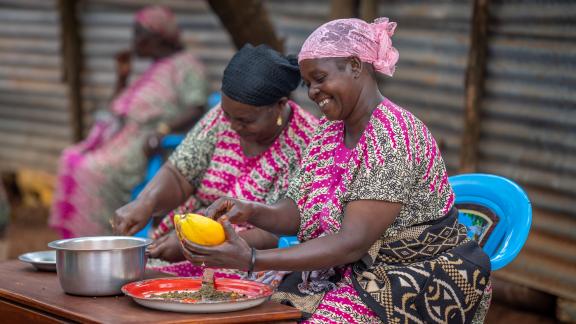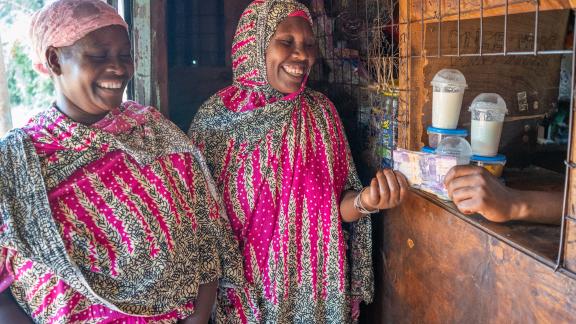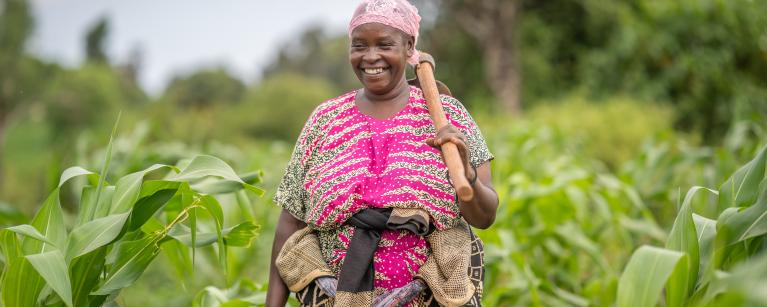“Before, we didn't know about good seedlings. Now, after receiving education, we farm more profitable and healthier crops like Rosecoco beans instead of the traditional red beans, which caused health issues. ”
Dakabaricha, like many areas in Marsabit County, has suffered from severe droughts that have drastically reduced agricultural productivity.
Asha Sode, a -47year-old resident and secretary of the Uye Women Group, recounts the hardships faced by her community: "Before all this, we suffered a lot. There was no rain; we used to depend on our farms and still do. There was prolonged drought, no food, no water, and no access to the forest."
Women, in particular, bore the brunt of these challenges. They spent hours searching for water, which delayed their other responsibilities and caused conflicts at home. The lack of sufficient food affected their children's concentration in school and overall well-being. To combat these challenges, Oxfam and PACIDA implemented a comprehensive program that brought
significant changes to Dakabaricha.
Education on proper storage techniques has also made a difference. Previously, pests would destroy their maize even after using pesticides. With new knowledge, they now store maize in nylon sacks, preserving it for longer periods without spoilage. Additionally, the project introduced value addition techniques, enabling women to turn surplus produce into marketable goods.
"We have learned how to turn papayas and other vegetables into products that can be sold even during droughts."

Ashs Sode with part of her Uye women group members during a pawpaw jam production in Dakabaricha, Marsabit. Photo by Misheck Macharia.
Economic empowerment has been a critical outcome of the project. The Uye Women Group, consisting of 21 members, now engages in collective savings and lending practices. This system provides loans with affordable interest to members in need, fostering financial independence and community solidarity.
The group has also ventured into beekeeping and tree planting, further diversifying their income sources and enhancing environmental sustainability. These activities have been supported through workshops and practical training sessions provided by the project.

Asha Sode with members of her group recieve payment after delivering their value-added products in Dakabaricha village in Marsabit. Photo by Misheck Macharia.
While the progress has been remarkable, Asha highlights the need for further development: "Our needs are many. We are working on small projects now, but we need proper industries with packaging, licenses, and weighing machines. Marketing our products is also a challenge; we need facilities to check expiry dates and maintain hygiene standards."
The NORAD-funded project has had a profound impact on the women of Dakabaricha, improving food security, enhancing economic stability, and building resilience against climate shocks. Through education, collective action, and innovative agricultural practices, the women have transformed their lives and their community. The journey continues, with aspirations for more advanced infrastructure and broader market access, ensuring long-term sustainability and prosperity for future generations.
